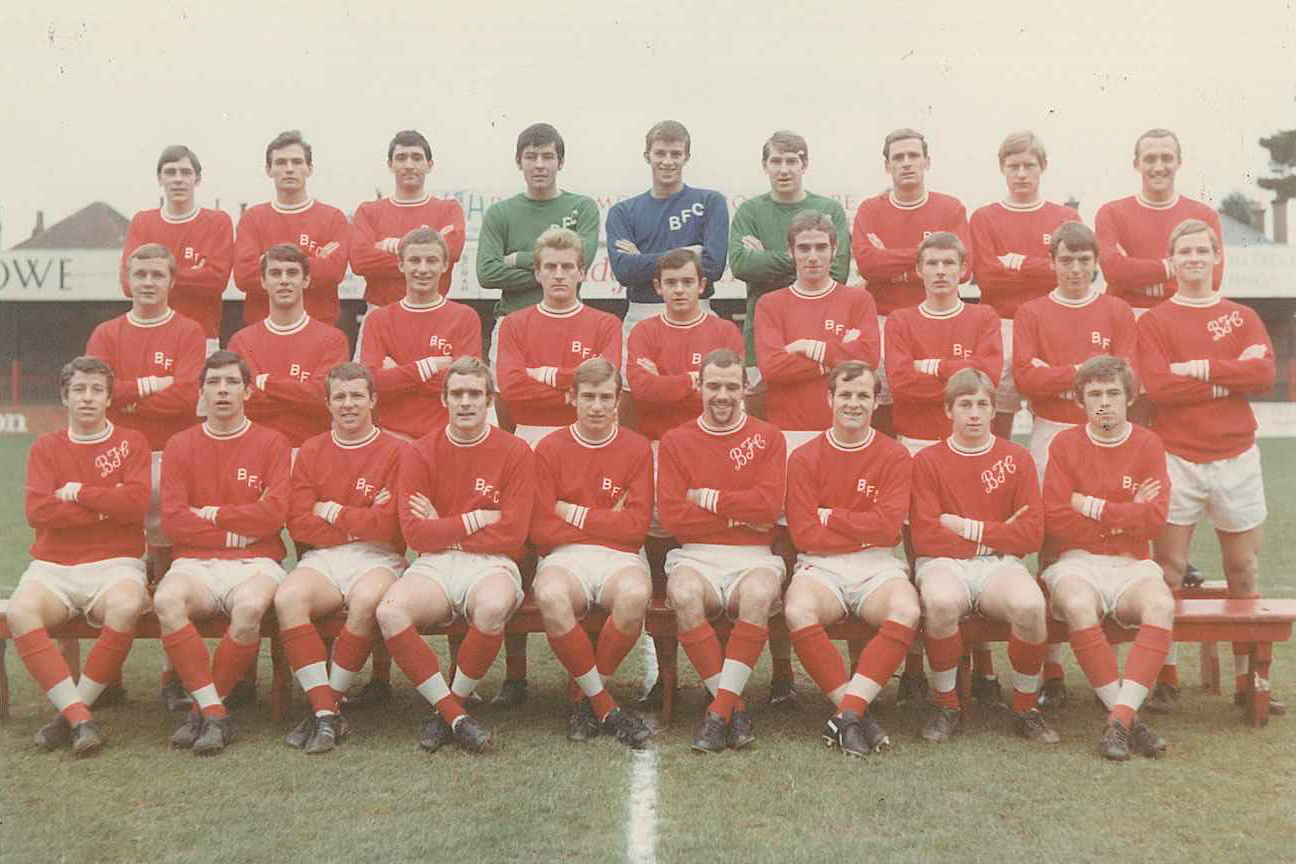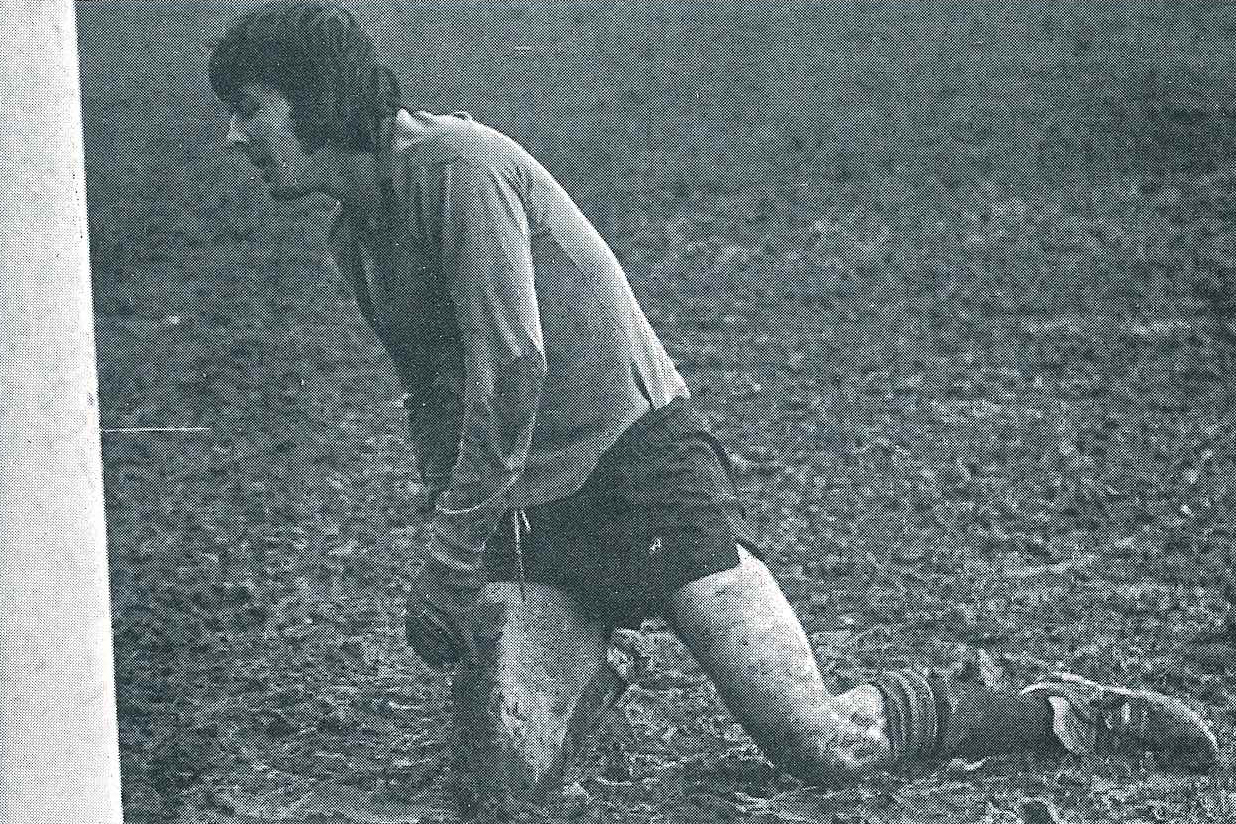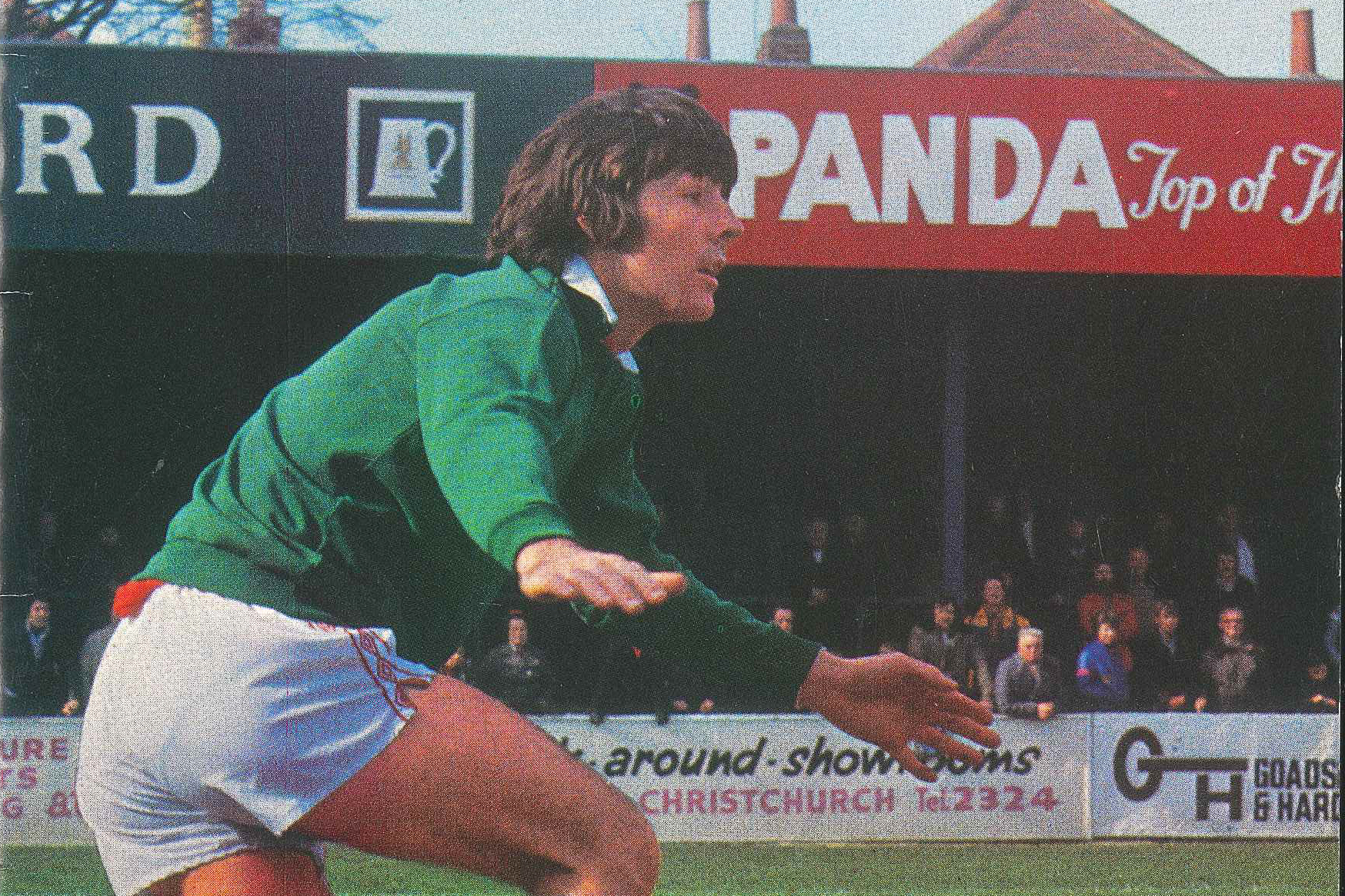
In the latest of our talks with former Cherries heroes, Kieron Baker talks about life as a youngster with the club, the arrival of John Bond and heading to the States for a footballing adventure.
An Isle of Wight native, Kieron Baker crossed the Solent to join the Cherries as a teenager, making his debut in the 1969/70 relegation season before being part of the squad that tasted success under John Bond.
When that brief ascendancy came to an end Baker would go on to become the club’s first-choice ‘keeper for a number of years, twice being named player of the year during the 1970s before moving on to Ipswich.
Baker made 217 appearances for the Cherries across his decade with the club and celebrated a milestone birthday his 70th birthday last year.
What are your early memories of joining the club as a teenager and then breaking into the first team?
When I signed for the club I was 16 so I was never an apprentice, I was halfway through my A Levels so I took one early, pure maths, and then when I came to Bournemouth they allowed me to do evening classes so I could get the other one.
When I got into the team for the first time I had been on the verge of giving it up. I’d spent two-and-a-half years in the third team playing in the Hants League, Kim Book was ahead of me in the reserves with Roger Jones, an England under-21s international, in the first team. I seemed to be going nowhere then all of a sudden they sold Kim, I played six games or something, and then Roger got injured – I went almost straight from the third team to the first team.
In those days it was two points for a win and out of the 21 games I played I think we got about 21 points, so I was really pleased.

That first season ended with relegation to the fourth tier, but only just…
We thought we’d stayed up actually. It came to the very last game of the season and if we lost we’d go down but if we drew it meant Gillingham would have to go to champions Leyton Orient the following Monday and win; Orient hadn’t lost at home all season and Gillingham hadn’t won away.
We drew our game 0-0, a great result for us, but then Gillingham beat Orient 2-1, there were two back passes that didn’t reach the ‘keeper and that meant we went down.
Soon John Bond arrived and the whole culture of the club changed, what was that shift like for those in the squad?
He was a bit of a showman, John Bond. He had PR work and some of the crowds we had, including 60,000 at Villa Park, it was a good time to be around the club, everything was buzzing – like it is now really. It didn’t feel like Third Division club then, it was exciting.
After one promotion a second straight ascension couldn’t quite be secured, that was the start of a leaner time for the club…
I think it was a record at the time, we got 62 points and that was the highest number ever for a team not to get promoted, Villa and Brighton went up ahead of us.
During the 1970s we just stayed in the Third Division, we didn’t look like winning too much. I got player of the year a couple of times, but I must have been because I had a bigger family than anyone else! In the programme there were voting slips and you could vote, and with one of the awards I won a trip to Tenerife.
We were sponsored by John Plank Travel Agents and so we took the holiday and went away, it was good.

You were granted a testimonial in 1978, but the match itself never came about, what was the story there?
To be honest, I had a few things organised. We’d done It’s a Knockout as Rothmans had been sponsoring the club and then we did pontoon tickets in jars in the pub and there was meant to be a testimonial game for me at the end of the year.
Then Bobby Robson came in for me at Ipswich and I got a phone call asking me if I’d like to go there, that was on the Wednesday and they said that if I wanted to go I had to go and meet the manager that day. I took the train up to London and signed for Ipswich that day.
Before I left I asked what would happen about my testimonial match, I was told that due to my service it would still happen and at the end of the year Bobby Robson said he’d bring down the Ipswich first team squad but the manager at Bournemouth wouldn’t allow it, that was frustrating.
After a year with Ipswich you moved to the USA for a short spell with Harry Redknapp, how did that come about?
At the end of my season with Ipswich I wasn’t in the team and I was struggling a bit with the heavy weather and a strained back and then Harry came in for me with Phoenix and I went over there.
It was great but there was a bit of a funny story, I had an insurance medical with Ipswich as they held my registration, Bobby Robson said it was fine for me to go to America as long as I had this medical but Harry wanted me over there for a big game – the American Soccer League playing against the North American Soccer League, billed as a game to find out which league was better.
The club said they’d fly me over and then fly me back for the medical, so I played in the game in America and in the last minute I dived at someone’s feet, he kicked through and broke my wrist. I came back in plaster, took the medical and stayed for about three weeks because my wrist needed healing. Then, by the time I got back over there, the club was falling apart!

What did you do after that chapter and then after hanging up your gloves?
When I came back I played for Weymouth for about three years and we won a few things, it was good down there. Then I formed my own building company with my dad, we built a few houses. At the end of the 1980s that all went pear-shaped with the recession.
A couple of months later I went for a meal with a project manager from a data company and I ended up doing a bit of labouring and I’ve stayed in it. Within a couple of months, I was managing jobs and it’s gone on from there.







